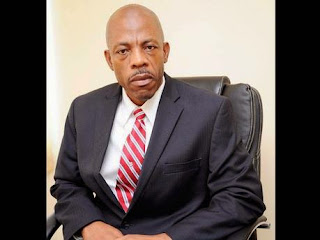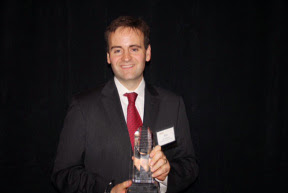Clik here to view.

Alumnus Dr. Carl Williams was recently sworn in as Police Commissioner for Jamaica.
A recent headline in the Jamaican Observer captured the sentiment of nation: “Say What? A Jamaican commissioner of police with a PhD!”
Dr. Carl McKay Williams (Ph.D. ’14) was named Police Commissioner for the island nation beginning Sept. 14. He will command the Jamaican Constabulary Force (JCF), which includes a staff of 15,000 to 16,000, including 12,000 sworn officers. The agency is responsible for law and order on the island, the prevention and detection of crime, the investigation of alleged crimes, the protection of life and property, and the enforcement of all criminal laws in the Jamaican penal code.
Image may be NSFW.
Clik here to view.
Dr. Williams leads a force of 12,000 sworn officers.Dr. Williams said his experience in policing and his academic training contributed to his appointment as the top cop in Jamaica.
“It is a very complicated task and a huge challenge, especially in a country plagued by high crime rates,” said Dr. Williams. “The combination of my academic training and professional experience have prepared me for this challenge.”
Williams, a 30 year veteran of the force, rose through the ranks, leading the country’s anti-narcotic campaign, the Anti-Lottery Task Force and the Major Organized Crime and Anti-Corruption Agency. Most recently, he held the position of Deputy Commissioner of Police in charge of crime.
Image may be NSFW.
Clik here to view.
Dr. Williams (right)meets with members of the Justice Ministry.“Commissioner Carl Williams comes to the post with a track record of innovation and performance in a wide variety of command roles in the Jamaica Constabulary Force,” said Jamaican National Security Minister Peter Bunting in announcing his appointment. “He is highly qualified academically, with a Ph.D. in criminal justice.”
Dr. Williams received his bachelor, master and Ph.D. in Criminal Justice from Sam Houston State University, going back and forth to Jamaica to apply the theories he learned at the College of Criminal Justice.
Image may be NSFW.
Clik here to view.
Dr. Williams (l)target illegal guns and lottery scams in Jamaica.Dr. Williams’ dissertation explored the causes of firearms assaults on Jamaican police officers.
“Dr. Williams’ research on assaults and officer safety in Jamaica advances our collective knowledge of officer safety,” said Dr. William King, a Professor of Criminal Justice at Sam Houston State University. “The findings will no doubt improve the safety of Jamaican law enforcement personnel. Dr. Williams also showed tremendous commitment to his studies.”
Image may be NSFW.
Clik here to view.
Dr./ Williams studied organized crime at SHSU.At SHSU, his graduate studies focused on organized crime, and in 2011, Dr. Williams returned to his country as a commanding officer in Western Jamaica to tackle the rampant problem of lottery scams. In Montego Bay, local youth were scamming elderly residents in Jamaica and the U.S. by telling them they had won online lotteries and would require a processing fee to collect the prize. The scam was tied to a series of murders to keep victims quiet.
“This was based on my sharpened focus to think of strategies to address these crimes,” said Dr. Williams. “The response that we mounted in Western Jamaica was very successfully and still is.”
Dr. Williams also founded the Major Organized Crime and Anti-Corruption Agency, an elite task force focusing on public sector corruption and major criminal bosses by working with partners in the country and abroad. The multi-agency initiative also included representatives from the Jamaica Defense Force, Financial Investigation Division (FID), Customs, Revenue Protection Division (RPD), Taxpayer Audit and Assessments Department (TAAD).
“The academic training helped me to think of new strategies to get the initiatives off the ground,” said Dr. Williams.
Image may be NSFW.
Clik here to view.
Dr. Williams was previously in charge of criminal investigations.Most recently, Dr. Williams served as the Deputy Commissioner in charge of the Crime Portfolio, where he had responsibility for all the criminal investigative functions of the force. He was a member of the command team during the implementation of Operation Resilience, which targeted gangs and gang-related activities in specific communities in an effort to reduce murders and shootings. The operation resulted in the seizure of 77 illegal firearms and the arrest of 174 gang members.
“In dealing with guns, it (my academic training) helped me to combat gun crimes in ways I did not know before,” said Dr. Williams.
With high crime rates continuing in his country, Dr. Williams said he will continue to reach back to his alma mater for new ideas and research to solve the problems.
“There is a lot of work to be done there,” said Dr. Williams. “Where do you think I would turn to get help?”
award.jpg)
dinner.jpg)
renton.jpg)
bags.jpg)
nabcj.jpg)












































